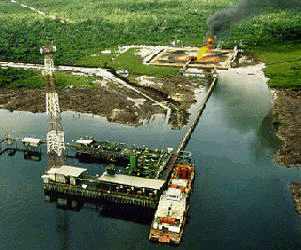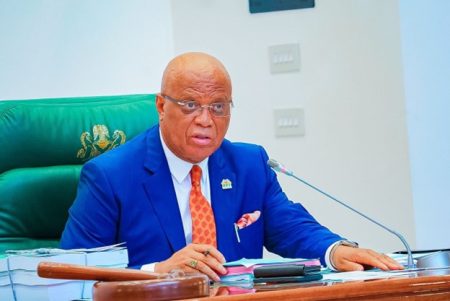
Mkpoikana Udoma
12 January 2018, Sweetcrude, Port Harcourt — A University Don, Prof. Willy Okowa, has said that despite the fact that fossil fuel will become irrelevant in the next 20 years, Nigeria still has a lot to gain from hydrocarbon, saying the future of crude oil was not bleak for the country.
Okowa who is a lecturer in the Department of Economics, University of Port Harcourt, speaking at the Energy and New Green Technology Conference, organised by Alfe City Institution in Port Harcourt, said it was ridiculous that Nigeria was still flaring gas after decades of oil and gas exploration and production.
He stated that instead of just exporting raw gas, Nigeria can produce in commercial quantity fertilizers, polymers and many other products from gas; as well as naphthalene, gasoline, petroleum coke, lubricating oils, paraffin wax, asphalt etc from crude oil, that can feed the whole of West Africa and also make foreign exchange.
Speaking on the theme, the Future of Hydrocarbon Industry in the New Age of Green Technology, the University lecturer urged the federal government to restructure the country politically and return power to the constituting units as a way forward.
According to him, “The future of Nigeria is not bleak because hydrocarbons in addition to serving as fossil fuels are also key components of many industrial products, they are perhaps the major basis of our modern industrial age.
“Natural gas is the base or major component in the production of a large number of modern industrial products, they include drugs and pharmaceuticals, fertilizers, polymers, perfumes, insecticides, water pipes, tires, refrigerators amongst others.
“Nigeria should focus on adding value to our crude oil by using this oil and gas to produce many other by-products.
“For instance, if we want to diversify into agriculture we need fertilizers, so if we can produce more fertilizers we can supply it to the whole of West Africa and make a foreign exchange, along with exporting the raw gas.”
Also speaking, the Chief Executive Officer of AlfeCity Institution, Mr. Soji Adeleye, reiterated the need to find solutions to change the dynamics of the people of oil-producing areas, especially in the advent of green energy technology.
Adeleye said the aim of the conference was to examine the immediate, medium and long-term effect the emergence of green technology will have on the future prospect of the Nigerian economy.
“The conference is to provide a template for a post-hydrocarbon economy for other sectors of the economy that have been wholly reluctant in the hydrocarbon industry.
“Provide mirror into the future for the benefits of citizens of oil-producing areas of a future economy that will be less reliant on hydrocarbon that has hitherto been the source of discord and militancy.
The Alfe City boss listed other objectives of the conference to include, exploring the role hydrocarbon energy has played in the global economy industrialization and exploring the politics of oil and the emergence of the new green technology.
“One of the most important decisions being discussed right now at both the policy level and corporate headquarters across the Globe is what to make of the inevitability of the new green technology and potential demise of the energy trade as we know it.
“In the case of economies like Nigeria that hitherto had relied almost exclusively on hydrocarbon industry for their economic survival, the issue is existential.
“The global collapse of the crude oil market in the recent time demands a rigorous analysis particularly in a place like Nigeria that derives almost all of her foreign exchange earnings exclusively from hydrocarbon,” the Alfe City boss said.
It will be recalled that France and other developed nations have fixed the year 2030 and 2040 to phase out all petrol- and diesel-fueled cars and switch to electric vehicles.


